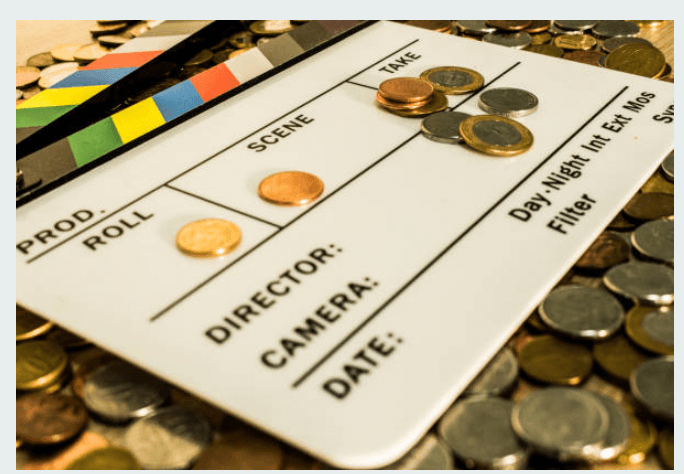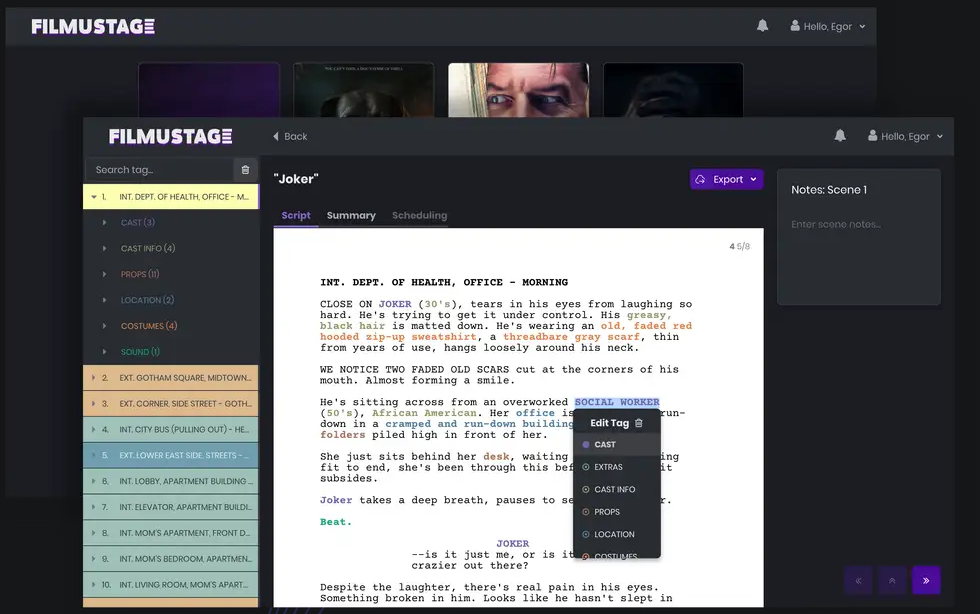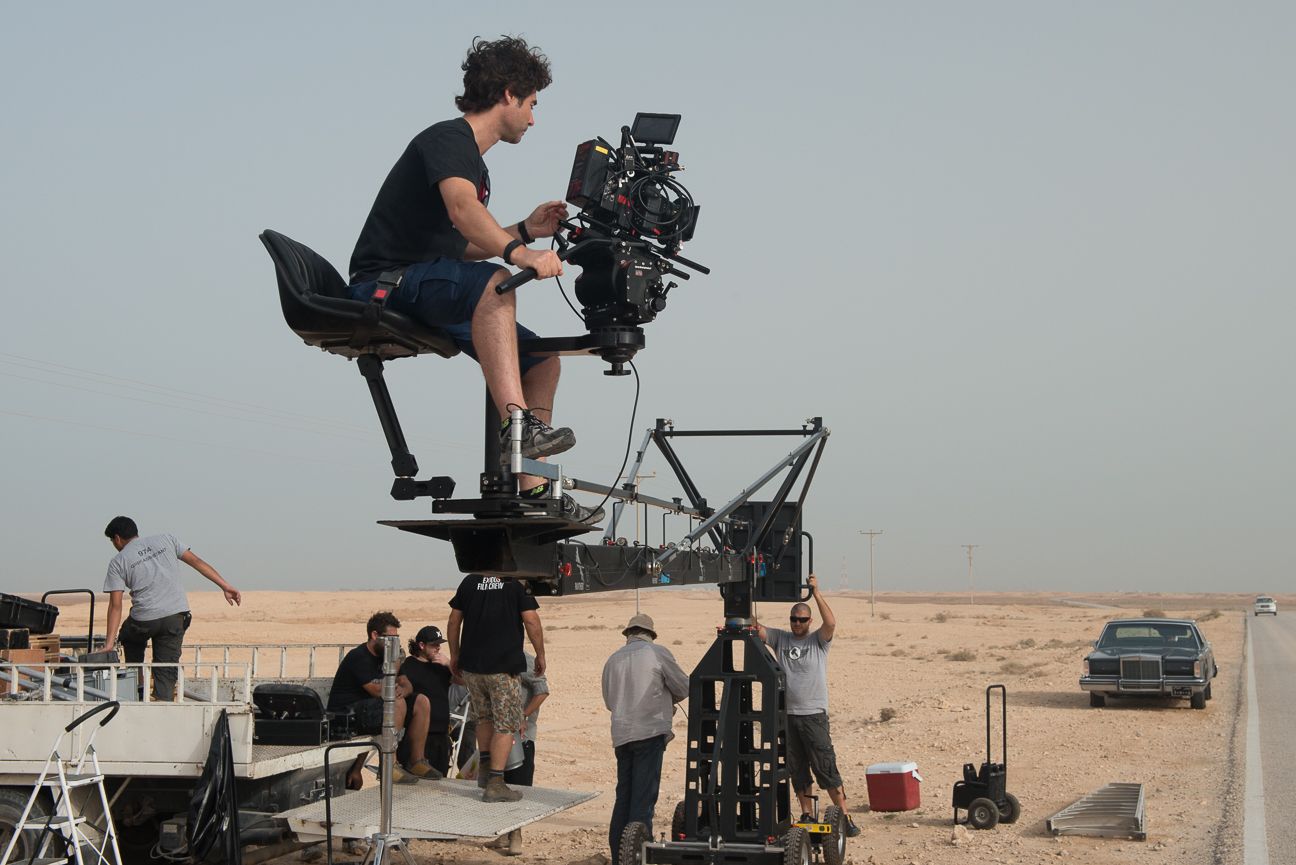A breakdown for budgeting: How to?
Today we will talk about how to accurately calculate the budget for your project.


We have already established that script breakdown is a key stage in the preparation of any film. It is also quite obvious that a script breakdown makes it possible to start the scheduling of the shooting. However, in this process, we have so far avoided what both breakdown and scheduling are directly related to - budgeting. So today, Filmustage will define how to calculate a budget for your movie.
So your script is finished. And you've probably done a breakdown in our automated service, right? No? Then we suggest you take advantage of our pre-trained technology that will do all the most routine work for you in a matter of minutes! But the most intriguing information we are about to leave for the finale of the article. And now to business: we've put together the following steps/tips to help you effectively create an accurate budget.
The first step is to look at your scenario. Yes, you may think, why would I do that when I've already seen the scripts hundreds of times. But trust us, before such a crucial step as this, it's not unreasonable to scan the script and make sure you haven't lost something.
Then pay attention to the tags generated by Filmustage. Each necessary element of the script will be highlighted in a particular color and sorted into the following categories: cast, props, locations, costumes, sound, etc. However, the first aspect to think about is undoubtedly the crew. To bring a multi-page script to life, you'll need a director, cinematographer, artist, sound, and, of course, a casting director, as well as many others. It is the team that should be considered a priority before the cast because if you spend most of the budget on talent, you're banal to have no money for a decent crew, as well as the conditions in which the team will stay.
Moving on, I'd like to point out that many producers and 1st ADs prefer to start planning their budget with a cast. In the case of expensive productions, it is especially relevant, because on the big stage an actor is not only a talented individual but also a media star, which is able to entice people to go to the cinema. Accordingly, the person who will shine on the screen is extremely important, because it is through the characters that we perceive the story for the most part. In your automatic breakdown, each individual character will be highlighted, so that you can trace the actions and circumstances of each character. And this step is extremely important because you may need a stuntman and a stunt coordinator for certain scenes - so just keep it in mind.

Next, the most logical decision would be to start working with locations. In this block, you can fit a lot of nuances. For example, what location is declared in the script, and what is its real price? Is it possible to shoot several scenes in one place? Will it be necessary to negotiate with the authorities, so that the police block the roads or streets? And in the end, how many locations do you need to shoot the film? All of these questions are sufficiently representative of the importance of such a step as working with locations.
How, however, will your characters be dressed? Or maybe you'll need to build a location yourself? Then you definitely should not neglect the art department, which is responsible for the creative part of the work. There are a lot of cases where the budget of a film has gone up a lot because the artists had to rebuild the set or change the scene beyond recognition. Of course, this not only greatly affects the budget, but also disrupts the timing of the shooting. So you should think in advance about what you are about to build, what props you need (usually highlighted in purple), what materials are crucial to implement the idea, and much, much more.
Obviously, apart from the crew and cast, you'll definitely use a huge amount of equipment. You should think over where and how to piece together the necessary setup (camera, its accessories, tripods, dolly, hard drives, sound, etc.). Also, you have to mark some special situations when you may need special equipment, for example, an underwater rig or telescopic crane.

Extras. Extras are critical. From a nameless character who appears sporadically (highlighted in yellow) to specific objects that define the atmosphere of the scene (highlighted in green). Atmosphere extras include, for example, people passing in the background. Exactly as separately need to allocate special effects that will be marked in blue. Pink highlights any vehicles or animals that will have to appear on the screen, as in this case, you will probably need to hire animal specialists or a professional driver. Brown in the industry marks any sound or music that is mentioned in the script. After reading all this, I think it's pretty obvious that extras aren't just additions to the budget, but an important part of it that's worth keeping in mind.
Last but not least is the comfort of the crew, namely the catering & craft services. Here it's simple: crew members should be fed and served as decently as possible, as it directly affects the physical and emotional state, and, accordingly, the productivity of the work.

So we've gone over all the most important criteria to consider when budgeting for your great movie. Of course, we admit that these steps can't be called universal, since every film represents a unique case of both pre-production and the rest of the stages. As the budgeting stage remains critical, it's time to unveil all the cards: our platform will have a new budgeting feature soon! Thanks to our update, all users will now be able to enter prices for locations, props, talents, extras, etc. directly into the summary of your breakdown! Rest assured that you won't lose any important aspect because it will all be in one place and in front of your eyes. We believe that along with our AI-powered breakdown service, you will successfully use this feature to plan the budget for your upcoming projects. Love, Filmustage!
From Breakdown to Budget in Clicks
Save time, cut costs, and let Filmustage’s AI handle the heavy lifting — all in a single day.